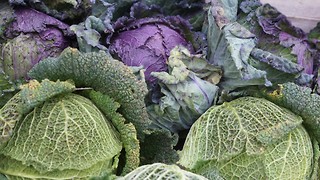The politics of mourning
The decisions behind who we choose to mourn or condemn are complicated, and should not be taken lightly, says Jason Okundaye

When questioning the Prime Minister’s Gaza Statement in July 2014, Caroline Lucas stated that “Hamas rockets are not happening in a vacuum, but they are the consequence of an on-going Israeli occupation.” Yet this was dismissed by David Cameron as ‘terrorist sympathising’. While we must condemn terrorist behaviour, there is a worrying trend in western politics of dismissing insurgencies, which fight for freedom in response to oppression, as operating in the interests of pure anarchism. It is the same mentality of selective condemnation which results in the UK maintaining cosy bilateral relationships with Israel, Turkey and Saudi Arabia, with little to no call for them to address their respective abuses of Palestinian, Kurdish and Shia lives (among others).
The Kurdistan Freedom Falcons (TAK) have claimed responsibility for a suicide car bombing ten days ago in Ankara, which killed at least 37 people. However, the Turkish authorities have specifically blamed The Kurdistan Workers’ Party (PKK), even though the TAK publicly present themselves as an uncompromising splinter-group which has little in common with the PKK. Debate over the precise nature of the relationship between these two groups continues.
The issue is not just one of selective condemnation, however. The problem of selective mourning has been quickly identified, with Facebook allegedly refusing to produce a Turkish flag filter to allow people to mourn publicly in the same way as following the Paris attacks in November. And now with more than 30 people dead following ISIS’s attack in Brussels yesterday, Plantu's cartoon portraying Franco-Belgian consolation has been criticised for publicising a European tragedy, but ignoring the plight of non-white countries which have suffered terrorism in the same month. There is undoubtedly a point to be made here regarding how brown lives are thought of as having far less value than white lives.
The most common explanation given for this pattern is that people sympathise more with what they identify with culturally and ethnically. Yet it seems our sympathy has more to do with the way these deaths are presented to us; just as we’re told who to condemn, we’re told who to mourn. When three-year-old Aylan lay dead on a beach our reaction was not prompted simply by genuine shock: after all, those advocating that we do more to help refugees had already been calling attention to deaths of this type. Our grief for Aylan was orchestrated, as the media placed his death under a spotlight (and on the front pages) and instructed us to be outraged. The media has a disturbing control over brown and black bodies, using them to provoke shock when it makes for a good story. This is precisely why images of Aylan or videos of Farkhunda Malikzada’s murder circulate on the internet without being censored.
In The Guardian, Liz Cookman has asked where Ankara’s ‘Je Suis’ moment is. However, opposing selective mourning with more selective mourning is plain contradiction. I say this because in the same week as the Ankara attack, 24 Nigerians following a Boko Haram suicide bombing on a mosque in North-East Nigeria. I say this because on the same day as the Ankara attack, 19 people were shot dead in Ivory Coast by the AQIM. I say this mostly, however, because the equation of the Ankara attacks with ISIS terrorist activity in Europe glosses over the Kurdish victims of historical and current oppression at the hands of the Turkish state, and undermines the complexity of geopolitical conflict.
Calling for Ankara’s ‘Je Suis’ moment – as one Facebook campaign among Cambridge students now does – dangerously conflates ISIS’s attacks in Paris and Brussels with the TAK’s attack on Ankara. The Turkish state has historically oppressed and massacred the Kurds; an oppression perpetuated today by Erdogan’s regime. The Kurds have suffered both the Dersim and Zilan massacres and the erasure of their cultural and political existence, being referred to as “Mountain Turks” until 1991. The Turkish state has even been accused of chemical warfare against the Kurds: images provided by German human rights activists in March 2010 were examined by forensic experts at the Hamburg University Hospital, who concluded that the eight photographed Kurds had died “due to the use of chemical substances.”
The PKK and TAK, though condemnable, are responses to oppression. ISIS, however, was born from western intervention in Iraq and the wider region. To equate the PKK and TAK with ISIS is to dismiss the hundreds of thousands of Kurds who have died at the hands of an oppressive state. The way in which the Turkish authorities seek to blame the PKK, rather than the TAK, further distorts the reality of the PKK’s cause. It is important to recognise that, though the TAK are far more extremist, the PKK are, fundamentally, freedom fighters resisting Erdogan’s dictatorship to establish an independent Kurdistan. When over 100,000 Yazidis were trapped and massacred on Mount Sinjar by ISIS in August 2014, it was the combined efforts of the Kurdish PKK, Peshmerga, and YPG that helped to liberate them. Condemnation of terrorism is essential, but the Turkish-Kurdish conflict requires sensitivity and thought, as geopolitical strife doesn’t simply come down to archetypal aggressors and victims.
We also mustn’t forget the pivotal role of Western perceptions when we feel able to extend our selective sympathy to Turkey. Erdogan’s efforts to have Turkey join the EU and the socio-economic allure of Turkey as a tourist attraction make it far easier to sympathise with Turkey than with Nigeria, Kurdistan or Ivory Coast. Identification through such close economic relations with Turkey perhaps explains why white Britons can comprehensively ‘rationalise’ the deaths of non-white bodies. Britons can also justify their apparent need to respect Turkish lives as much as Belgian or French lives on the grounds that they have holiday snaps that validate their existence. This is a luxury not afforded to other countries which are affected by terrorism daily.
The politics of mourning are complicated; far more complicated than we necessarily realise when we respond to these events. But if we are to call for universal mourning then our social media movements must be dedicated to broadening visibility for all victims of terrorism and war. At the moment, countries impacted by terrorism are merely winners or losers in the competition for Western sympathies and solidarity.
 News / ‘Out of the Ordinary’ festival takes over Cambridge 26 August 2025
News / ‘Out of the Ordinary’ festival takes over Cambridge 26 August 2025 Comment / Who could possibly want more exams?25 August 2025
Comment / Who could possibly want more exams?25 August 2025 News / Tompkins Table 2025: Trinity widens gap on Christ’s19 August 2025
News / Tompkins Table 2025: Trinity widens gap on Christ’s19 August 2025 News / Council criticised after market plans announced27 August 2025
News / Council criticised after market plans announced27 August 2025 News / Government pulls £277M in funding for Cambridge sewage works relocation25 August 2025
News / Government pulls £277M in funding for Cambridge sewage works relocation25 August 2025








